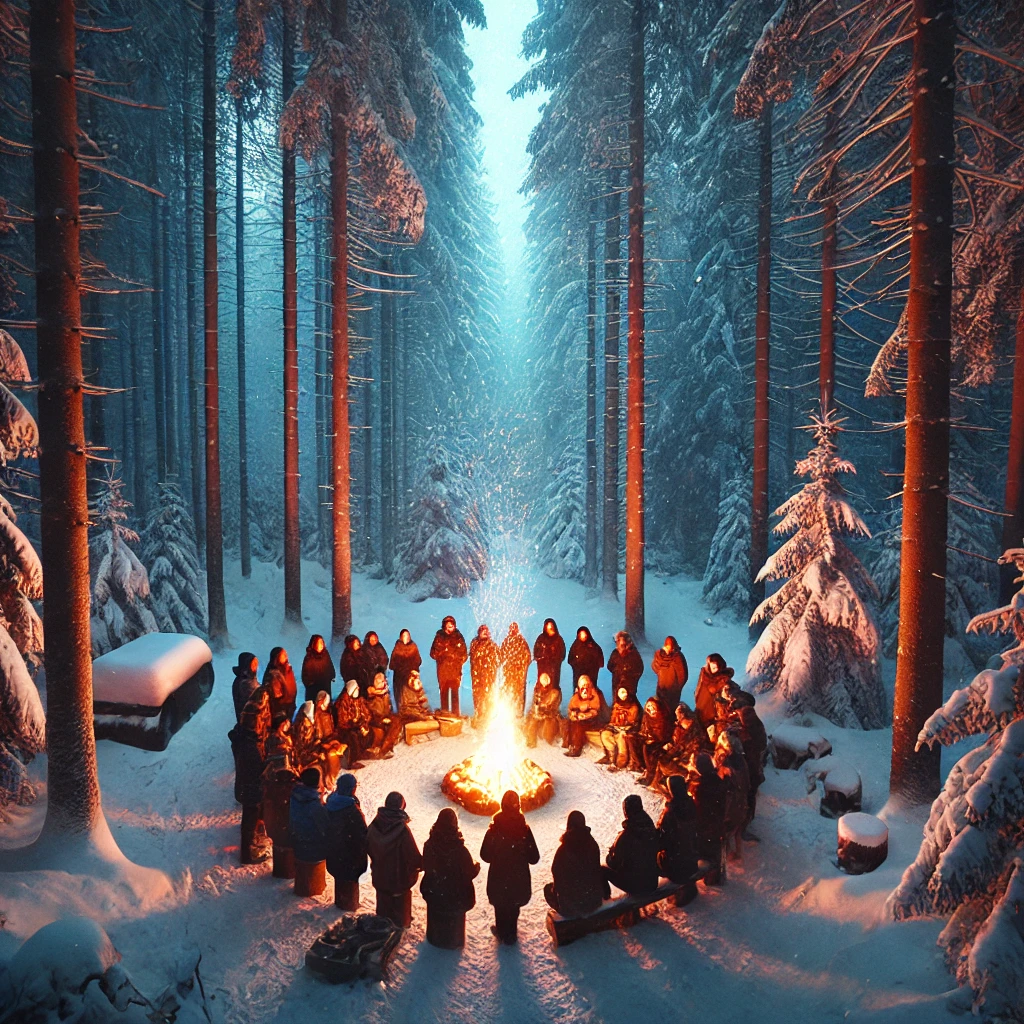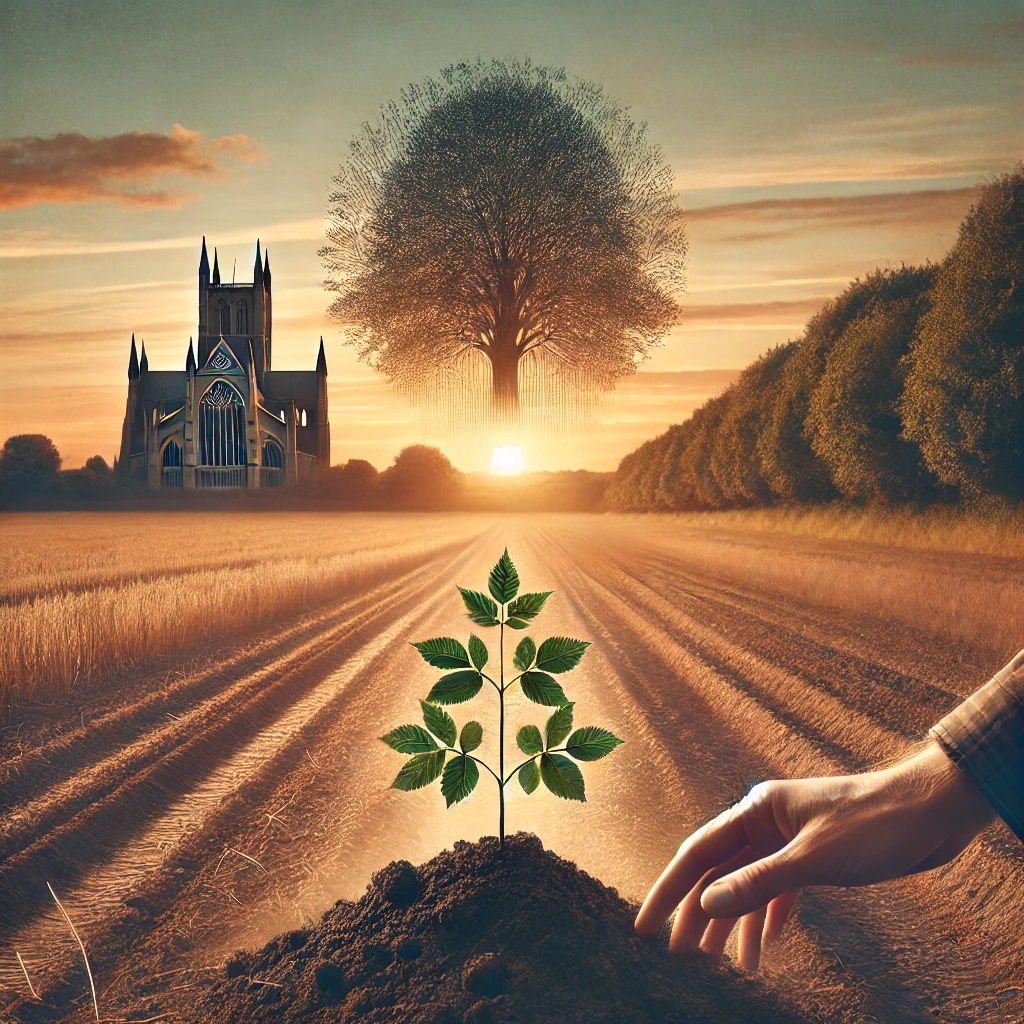As the sun reaches its peak and the days stretch long into the evening, summer arrives in a blaze of vitality. In the natural world, this is a time of abundance and fullness. Flowers bloom, crops ripen, and animals move with vigour. It is the height of outward expression – a season that invites us to live with energy, connection, and wholeheartedness.
But summer isn’t only about activity and achievement. It’s also a time to embody joy, savour the present moment, and align your outer life with your inner truth. In the journey of living purposefully, summer invites you to step into visibility and live what you believe.
Prefer to watch, rather than read – check out the video below
The Energies of Summer
Summer is the season of radiance. After the inward quiet of winter and the shedding of spring’s transitions, summer encourages us to expand – to share what has been germinating beneath the surface. This is a time for inspired action, creative expression, and meaningful connection.
Spiritually and emotionally, summer reminds us of the value of being present. It’s a time to live fully in your body, in your relationships, and in the moment. If winter is for rest and reflection, and spring for renewal, summer is the season of embodiment – a chance to walk your talk and live your purpose with energy and joy.
Activities to Align with Summer’s Energy
To engage with the energy of summer, try weaving the following practices into your days:
1. Take Purposeful Action
Summer invites movement — – but not just any action. Think of the ideas, intentions, or goals that have been quietly forming during the earlier months. What wants to come to life now? Whether it’s launching a new project, hosting a gathering, or sharing your voice more publicly, this is a season for bringing your purpose into form.
2. Celebrate How Far You’ve Come
So often, we rush ahead to the next goal without pausing to acknowledge our progress. Summer reminds us to celebrate – not just achievements, but the journey itself. Reflect on what you’ve learned, how you’ve grown, and what you’re proud of. Celebration can be a powerful form of self-recognition and motivation.
3. Embody Your Values
This is a wonderful time to ask: Am I living in alignment with what I say I value? Let summer be a season where your choices reflect your inner truth. Whether it’s prioritising relationships, spending time in nature, or making work decisions that support your integrity, summer offers a moment to align the inner and outer.
4. Connect with Others
Summer is naturally social – full of opportunities to gather, collaborate, and commune. Seek out people who energise and uplift you. Deepen relationships that support your growth. Whether through friendship, community, or professional networks, allow connection to be a source of nourishment and purpose.
5. Spend Time in Nature’s Abundance
Being outdoors in summer reminds us of life’s fullness. Sit under a tree. Watch bees gather pollen. Walk barefoot on grass. The natural world offers daily reminders of rhythm, growth, and beauty. Let it mirror your own flourishing – and restore you when the world feels fast or loud.
6. Honour Your Boundaries
With all its energy and invitation, summer can become overwhelming. Don’t feel you need to say yes to everything. Honour your energy and create space for rest and solitude. Just like the sun eventually sets each day, you’re allowed to pause and retreat, even in summer.
7. Infuse Daily Life with Soulfulness
Make space for little rituals: light a candle in the morning, speak gratitude over your meals, listen to music that uplifts you. These small acts ground you in intention and bring a deeper sense of meaning to everyday moments.
Living Soulfully in the Season of Sun
Summer is not just about doing – it’s about being in a way that is fully alive. It asks you to show up, to be visible, and to live in alignment with who you are becoming.
Let it be a time of light and laughter, of bold steps and gentle moments, of wholehearted connection and joyful purpose. When you allow yourself to embody the fullness of summer, you not only celebrate life – you become a living expression of your own deepest truth.







